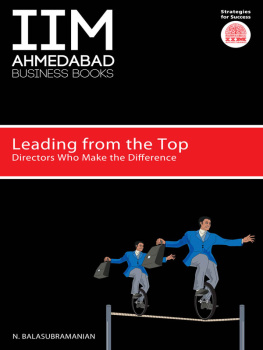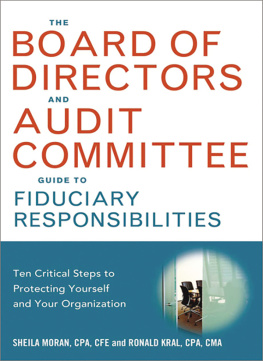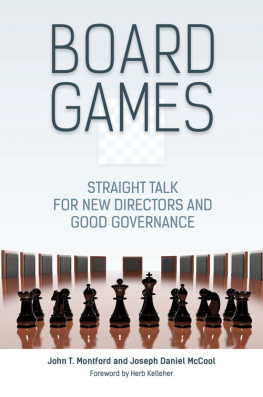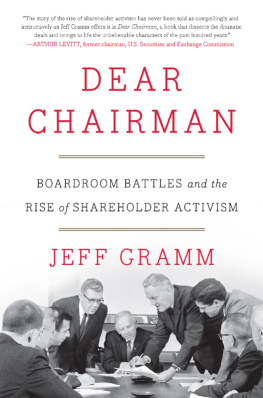


Published by Random House India in 2013
Copyright N. Balasubramanian 2013
Random House Publishers India Private Limited
Windsor IT Park, 7th Floor, Tower-B
A-1, Sector-125, Noida-201301, UP
Random House Group Limited
20 Vauxhall Bridge Road
London SW1V 2SA
United Kingdom
This eBook is copyright material and must not be copied, reproduced, transferred, distributed, leased, licensed or publicly performed or used in any way except as specifically permitted in writing by the publishers, as allowed under the terms and conditions under which it was purchased or as strictly permitted by applicable copyright law. Any unauthorised distribution or use of this text may be a direct infringement of the authors and publishers rights and those responsible may be liable in law accordingly.
EPUB ISBN 9788184005127
To
the Generation Next
Madhu, Rashmi, and Anannya
CONTENTS
Case Summaries
PREFACE
There was a time when we used to read about the corporate failures in the UK, the US, and elsewhere in the developed world and feel relieved that Indian corporate sector had kept itself by and large free from such developments. Of course, there were occasional capital market upheavals such as the Harshad Mehta securities scam and the Unit Trust debacle in the nineteen nineties but these were taken in the stride as serious but relatively rare exceptions. Maybe many corporate misdemeanours were not detected and exposed. But the new millennium started with an unprecedented corporate fraud (Satyam Computers: although surfacing only in 2009, its origins went back to 2002); and as the years passed by, not a day has gone by without some report or the other about corporate dealings that didnt seem right. Maybe our awareness of what is right and wrong in a corporate format had improved with the worldwide increase in corporate crime, maybe our reporting and investigative journalism had come of age, maybe the corporate sector was taking its cue from the scandals in government and political governance; whatever the cause, the striking fact is that much needs to be done to cleanse the corporate system to get it back on track of making business profitable through legitimate means, and ensuring the interests of all stakeholders including all, and especially absentee, shareholders.
There is need for greater appreciation of the basic ground rules in governing corporations. While the board is responsible for overseeing and ensuring good governance, it is equally also necessary for executive management and the ranks down the line to gain such appreciation so that they can perceive their role in the overall framework more precisely and discharge their assigned functions accordingly. This will not of course eliminate devious elements engaging in inappropriate activities for personal gain by design and intent; on the other hand, it would help those who wish to perform the right way but fail because of lack of proper understanding of the corporate format. I would like to believe this latter category represents a vast majority of the population, irrespective of their station in the corporate hierarchy, whether at the top at the board and executive levels or lower down in operational jobs. This short volume is addressed to those who while looking after their interests to the best of their ability, would also like to do so in the right way. After all, means are as important as the ends themselves.
Todays managers and professionals are tomorrows directors and chief executives. A broader understanding of good governance and its consequences for themselves and the stakeholders they serve would help the boards of the future to better discharge their obligations in full measure. That will be a huge positive for the Indian corporate sector and concomitantly for the wellbeing of the country and its people.
If this volume helps and promotes better understanding and practice of good corporate governance among even a modest proportion of corporate directors, executives and managers, the students and others preparing for such positions, and the practitioners who advise, counsel and guide corporate officers, the book would have served its purpose.
FOREWORD
This book has been written by a person who deserves to be recognized as the father of corporate governance in India. He is undoubtedly one of the foremost thinkers in the field of corporate governance in the world. He has contributed enormously to improving corporate governance in India through his extensive research, numerous publications, teaching in academic and executive programs and participation in actual governance of corporations. This book, Leading from the Top: Directors who make the Difference, takes you through nuances of the entire gamut of issues involved in governing business organizations. The enormously rich experience of the author comes through in the lucidity of the language and the style of presentation. The highlight of the book is the extensive use of appropriate vignettes that capture the essence of ideas and concepts discussed. These provide the readers with anchors to navigate through the landscape of governance. Emphasizing the need for corporations to be ethical and observe the highest standards of probity, the author provides invaluable advice on how boards and individuals must conduct themselves to deliver on the expectations of stakeholders. The book is a must read for all executives. While the relatively junior executives will get to unravel the fuzzy world of top management, the senior executives will learn about how they ought to conduct themselves in the near future when they are given the reigns of governance. Incumbent directors will also find the book useful as a guide to enhance their board contribution.
Samir K. Barua
Professor and Former Director
IIM Ahmedabad
October 2013
ACKNOWLEDGEMENTS
I am humbled by a deep sense of overwhelming gratitude to a number of institutions and people as I begin to record my sincere acknowledgements to those who have contributed to my learning which I have tried to reflect and share with readers in this short book.
The idea of writing this volume was initiated by Professor Samir Barua, then the Director of the Indian Institute of Management Ahmedabad. He has been a source of constant encouragement and support throughout, and has freely given his time going through earlier drafts of this book and suggesting invaluable improvements, besides also writing the foreword; to him I owe a great debt of gratitude.
I have used material from some of the cases authored jointly and I acknowledge with gratitude my co-authors contribution and support; in particular: Samir Barua, Subramanian Raghunath, and Sundararajan Selvaganapathy. I would also like to acknowledge the initial work and research support provided by several of my students and associates in the preparation of the full teaching cases from where many of these summaries have been made.
I acknowledge the support provided by Random House in getting this book to its publication. Milee Ashwarya and especially my editor, Radhika Marwah, have been wonderfully creative and supportive in structuring the book and rendering it reader friendly.














